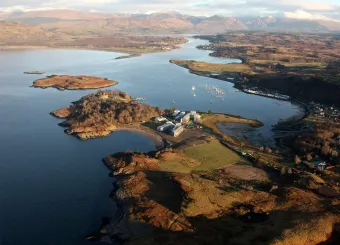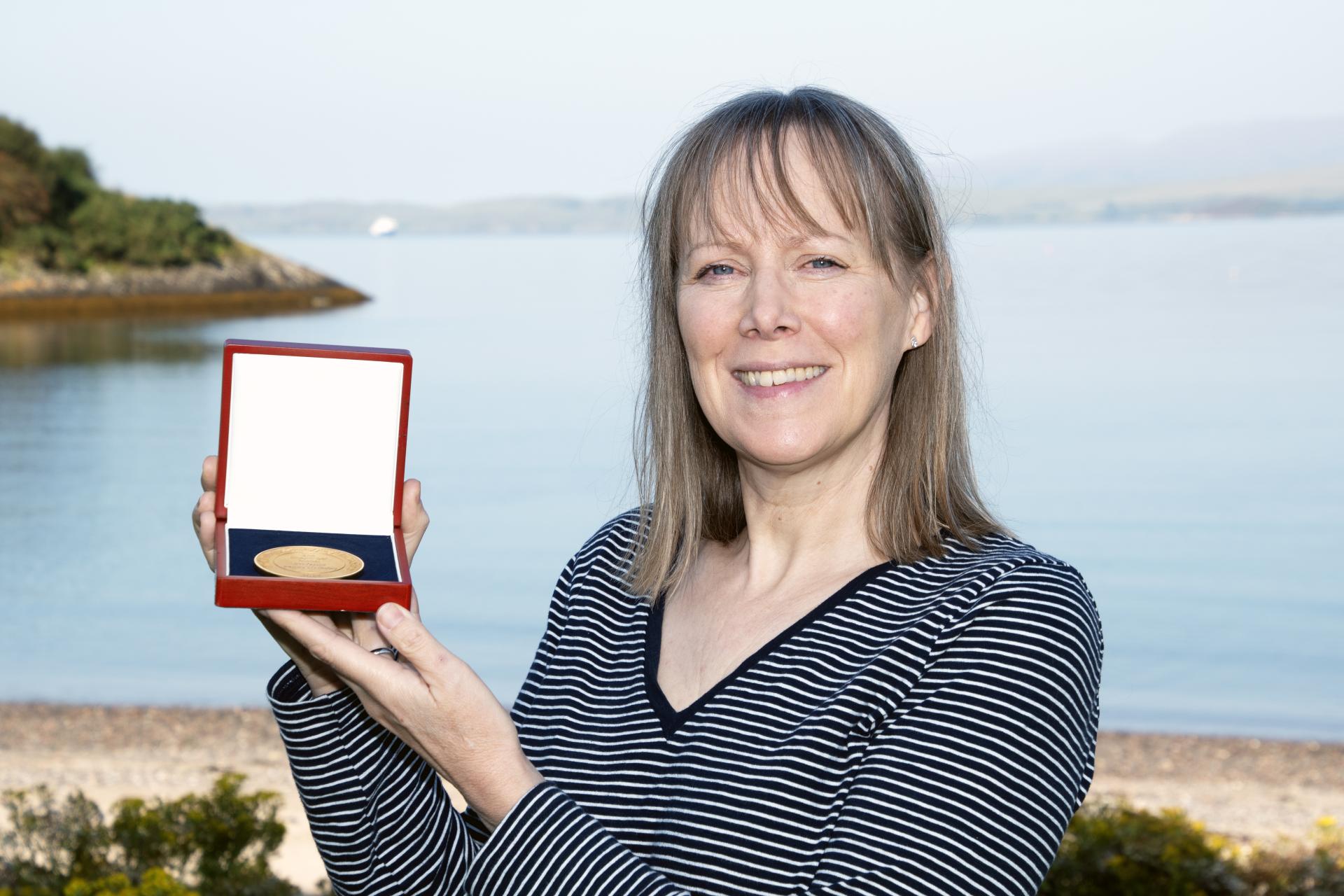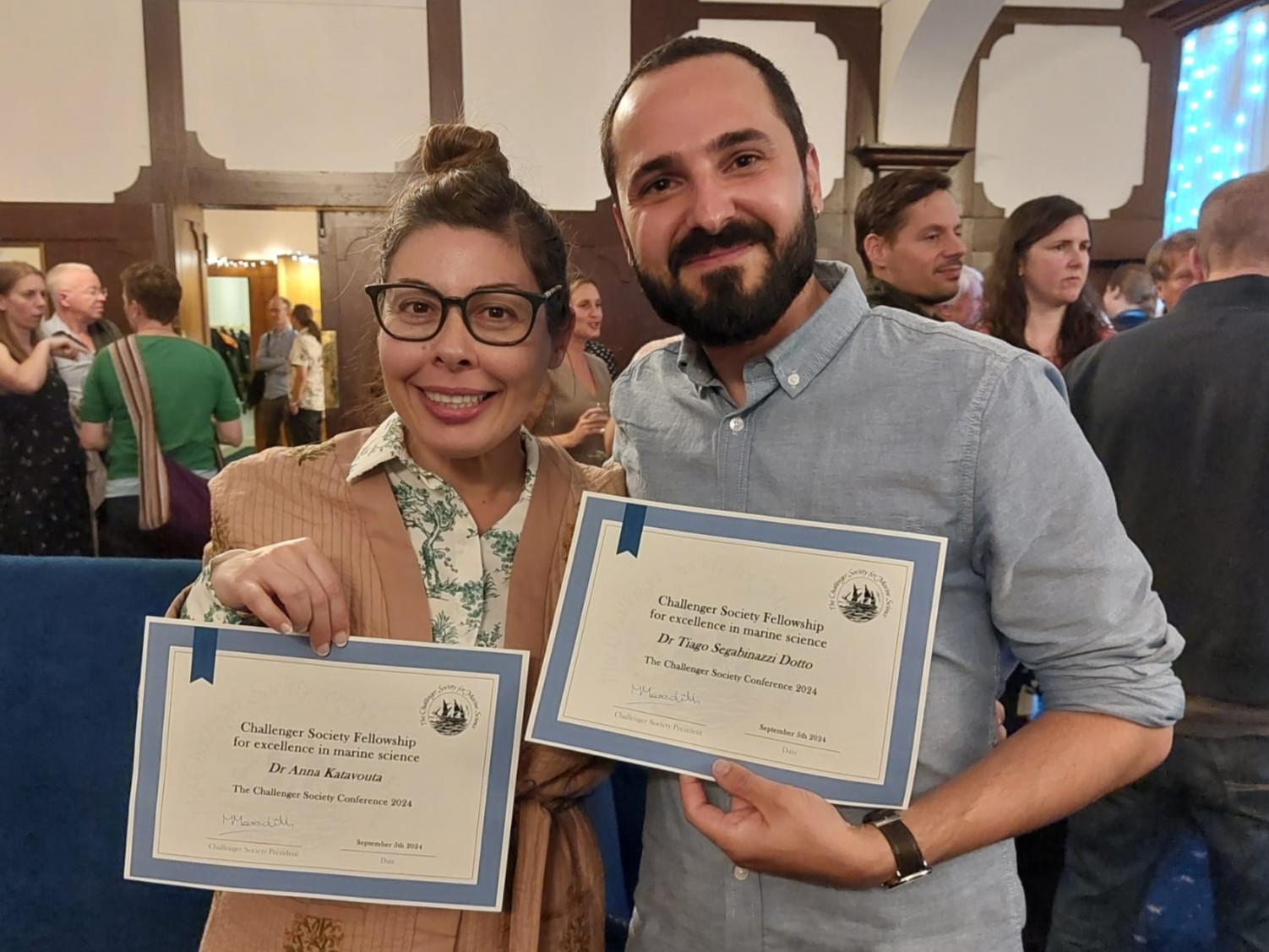
Scientists from the National Oceanography Centre (NOC) joined a major gathering of marine scientists this week (2–6 September) to talk about cutting edge marine science from the UK and beyond.
The Challenger Society Conference, being hosted by the Scottish Association of Marine Science in Oban, Scotland, attended by around 300 scientists, making it one of the UK’s largest ocean science focused events.
Giving keynotes at the event were NOC’s Professor Dan Jones, who leads our Ocean BioGeosciences group, and Dr Katy Hill, lead scientist for ocean research infrastructure, in her role as lead scientist on the Natural Environment Research Council’s (NERC) Future Marine Research Infrastructure (FMRI) programme.
NOC’s Chief Scientific Officer Professor Penny Holliday was also presented the Challenger Medal by event organiser the Challenger Society and gave the Challenger Medal Lecture.

In addition, scientists from across NOC’s science teams have been giving presentations and presenting posters across a wide range of topics relating to our understanding, use and protection of the ocean.
Driving ocean observation
A key theme is ocean observation, says Professor Jones, whose Wednesday keynote talk focused on how disturbance of the deep ocean can be a sustaining force, but also destructive.
While the UK plays a major role in impacting what happens in the deep ocean, we still need a better understanding of what happens when deep ocean environments are disturbed by activities like deep sea mining to help support policy and decision making.
“Disturbance is a driving force for change and the maintenance of the conditions needed to support the diverse life in the deep ocean,” he says. “But what happens when humans start to interact in that environment with activities like deep sea mining?
“As scientists, through ocean observation, we need to provide the evidence and understanding of these processes, how systems change naturally, what disturbance does to the system and how it recovers, to help support policy and decision making.
“In the UK, there has been a steep change in understanding in this area over the last 10 years, but we do not have all the answers yet, so I’m keen to motivate the community towards this effort.”
A more digital vision for ocean science
Dr Katy Hill, who also presented her keynote on Wednesday in her NERC FMRI role, focused on future ocean observation requirements through an initial insight into the draft FMRI Science Requirements Framework, looking forward to “Marine Science in 2040”.
This is a document, due to be shared for review with the national and international science community later this year, that will shape recommendations for investment into the UK’s future marine research infrastructure, to be delivered in March 2025. Key initial themes, gaps and opportunities will be discussed at the conference.
Key themes, she says, include five “grand challenges”, centred on our changing climate, biodiversity and ocean health, resilience to natural hazards, marine pollution and the blue economy and opportunities for investment. Opportunities include how we could better use digital capability to help combine the tools we have and drive more integration and insight, from planning and sampling through to modelling and the interplay between those.
But also, how to use digital platforms to help enable more multidisciplinary science, integrating physics, chemistry and biology data to be able to visualise and explore it more easily and efficiently.
Dr Hill’s talk was followed by an afternoon of townhall-style discussions, to provide initial feedback on the “grand challenge” drafts and their cross-cutting issues.
A changing North Atlantic Ocean
Professor Holliday’s Challenger Medal talk, titled Changing North Atlantic Ocean: science, fun and persistence, took up the ocean observation theme on Thursday.
Professor Holliday says that understanding the way the Atlantic Ocean changes over time is both compelling to scientists and also now recognised as being crucial for our future wellbeing.
“I will trace a selected history of the past 50 years of observing and understanding of physical changes in the North Atlantic, told through the personal lens of my own research,” she said ahead of the event. “Along the way I’ll be reflecting on the fun and the challenges that science has given me, and highlighting how the way that we do our work is just as important as the work itself.”
Challenger Fellowships

The event, being held at Oban’s Corran Halls, also saw the presentation of Challenger Fellowships to Dr Anna Katavouta and Dr Tiago Segabinazzi Dotto. This recognition is reserved for early career scientists to acknowledge their outstanding accomplishments or potential in a branch of marine science. The fellowship was created by the Challenger Society in 2000 and is awarded biennially to members of the Society.
The conference is organised by the Challenger Society, named after the famous Challenger expedition (1872–1876), a highly influential scientific expedition that laid the foundations for modern-day marine science.
For more information visit: https://challenger2024.co.uk.
Notes to editors
For press enquiries, please contact: communications@noc.ac.uk.
About NOC
NOC is the UK’s leading institution for integrated coastal and deep ocean research. NOC undertakes and facilitates world-class agenda-setting scientific research and technology development to understand the global ocean by solving challenging multidisciplinary, large scale, long-term marine science problems to underpin international and UK public policy, business and societal outcomes. NOC is a company limited by guarantee set up under the law of England and Wales (11444362) and registered as a charity (1185265).
NOC operates the Royal Research Ships James Cook and Discovery and develops technology for coastal and deep ocean research. Working with its partners NOC provides long-term marine science capability including: sustained ocean observations, mapping and surveying; data management and scientific research and advice.
Among the resources that NOC provides on behalf of the UK are the British Oceanographic Data Centre (BODC), the Marine Autonomous and Robotic Systems (MARS) facility, the National Marine Equipment Pool (NMEP), the National Tide and Sea Level Facility (NTSLF), the Permanent Service for Mean Sea Level (PSMSL) and British Ocean Sediment Core Research Facility (BOSCORF).